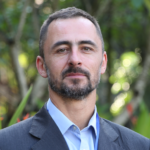In 2024 and early 2025, a large number of Regional Studies Association (RSA) members participated in a series of focus group sessions convened by the RSA to understand the priorities of the regional studies research community (Kinder, 2024). This post reports the results of that ‘listening exercise’: in particular, the challenges currently faced by regional researchers, their thoughts about the future, and the RSA’s role as a professional community in supporting regional researchers.
Knowledge production in regional studies, like any interdisciplinary academic field, evolves within the current political-economic conjuncture (Peck, 2024). As our field responds to societal challenges, including climate change, rising socioeconomic inequalities, and political instability (UNHabitat, 2025), it also operates within this context of polycrisis, with direct effects on the professional experiences of regional researchers worldwide. By drawing on focus group insights to support its strategic planning efforts, the RSA has built a clearer picture of present and future challenges facing regional researchers.
Following a pilot in June 2024, the RSA’s listening exercise ran between September 2024 and January 2025. It comprised nine focus group discussions and an interactive plenary session held at the RSA’s Winter Conference 2024 (RSA, 2024). With the majority of sessions chaired by members of the RSA’s Board, a total of 151 members from more than 24 countries shared their perspectives as regional researchers. Participants ranged from PhD students to emeritus professors, with contributions coming via RSA territorial representatives, conference delegates, RSA grant and award holders, members of the RSA Women’s Network, and others.
Participants were asked to talk about challenges they face as urban/regional researchers, and how these might change in the future. Additional questions were asked about people’s experiences of RSA programmes and other sources of professional and academic support. However, this blog focuses principally on the challenges faced, in the belief that ‘[k]nowing that others face similar (or different) circumstances and challenges to ourselves not only feels good but widens our knowledge of professional practice and allows a degree of ‘benchmarking’ against which we may adjust our expectations and future decisions’ (Kinder, 2017, p.332). Focus group recordings were transcribed and analysed by RSA staff members for emergent themes. RSA board member Grete Gansauer then conducted a qualitative coding exercise to consolidate themes; in this analysis, we identified structural and discipline-scale concerns facing the regional studies discipline today.
At the structural scale, it is perhaps unsurprising that funding constraints emerged as a pressing concern. As higher education institutions in the UK, the US, low-income countries and elsewhere face systemic defunding, funding feels scarce not only for regional research but also for important corollaries to building a knowledge community, such as conference attendance. Such deficiencies, coupled with geopolitical concerns, were cited as barriers to international collaboration and networking. At the same time, the accessibility and availability of data, particularly in low-income countries, were consistently referenced as a barrier to engaging at the cutting edge of regional studies knowledge production. These structural concerns, therefore, reflect both broad-scale issues within academic systems, alongside challenges specific to the field of regional studies.
We identified three key challenges associated with regional studies as an interdisciplinary endeavour: (1) connecting research to policy; (2) a lack of professional/career pathways for regional studies students and early career researchers; and (3) the (in)coherence of regional studies as a field. First, regional researchers representing a diversity of backgrounds and nationalities emphasised continued difficulties with connecting research to policy, citing shortfalls in their networks with policy makers and practitioners, as well as in producing policy-relevant or responsive research. Fittingly, perhaps for our field, they described the need (and therefore the challenge) of building partnerships with policymakers across scales of government, from local to regional, national to supranational. A second issue of concern was raised by the student and early career cohort: the lack of permanent employment tracks within academia, made more challenging given the skills mismatch between regional studies’ methodological pluralism and a professional labour market outside academia, which increasingly demands data science skillsets. Finally, regional studies’ interdisciplinarity was described as both a strength and a challenge – a longstanding sentiment that may never be fully reconciled (Markusen, 2003). While many participants expressed appreciation for the welcoming culture and epistemic and methodological diversity of the field, a lack of understanding about the value of regional studies scholarship among policymakers, practitioners, and potential employers was reported as limiting its reach and impact, as well as the availability of career opportunities beyond the academy for regional researchers.
As regional studies researchers face challenges that either run across the academic sector or are more specific to our field, the RSA, as a professional society and institutional representative for the discipline, is seeking to adapt to such concerns. Looking back, our field has established and empirically tested the value of networks, social capital, and relationships (put another way: community) in the co-production of knowledge (see, for example, Audretsch and Feldman, 2004). We have also described how such resources create resilient systems (Boschma, 2014) and how the RSA itself complements the role of universities, by offering spaces between and beyond higher education institutions and enabling impact outside the academy (Hopkins, 2015). Looking at the present, RSA programmes already exist to alleviate some of the more pressing challenges facing regional researchers. These include its:
- ‘catapult’ style grant funds for regional research, comprising modest but accessible funding, with research themes largely originating from the field;
- Professional Development webinar series;
- targeted support for students and Early Career researchers, which aims to build networks and audiences for their work;
- activities to connect researchers with policymakers, including through sessions at RSA conferences (RSA, 2025).
Looking ahead to a future where politics, funding, and career opportunities feel increasingly uncertain, the RSA will need to strengthen regional research and knowledge networks, advocate energetically for the value of regional studies and develop the career development support it offers its members.
Connect with Authors

Alan Kinder is the Chief Executive of the Regional Studies Association and General Manager of the RSA Europe foundation. He joined both organisations in February 2024, arriving with extensive experience of organisational and professional leadership. Alan’s background is as a geographer and geography educator. He led the Geographical Association (GA) for over 11 years and played an active role in national and international education policy for over 20 years, exerting a considerable influence on the curriculum and professional practice we see in geography education today. Alan’s key responsibilities include strategic and organisational leadership, securing the sustainable development of both the RSA and the RSA Europe foundation and acting as the principal ambassador for each organisation.
![]() : Alan Kinder
: Alan Kinder ![]() : @rsachiefexec.bsky.social
: @rsachiefexec.bsky.social
